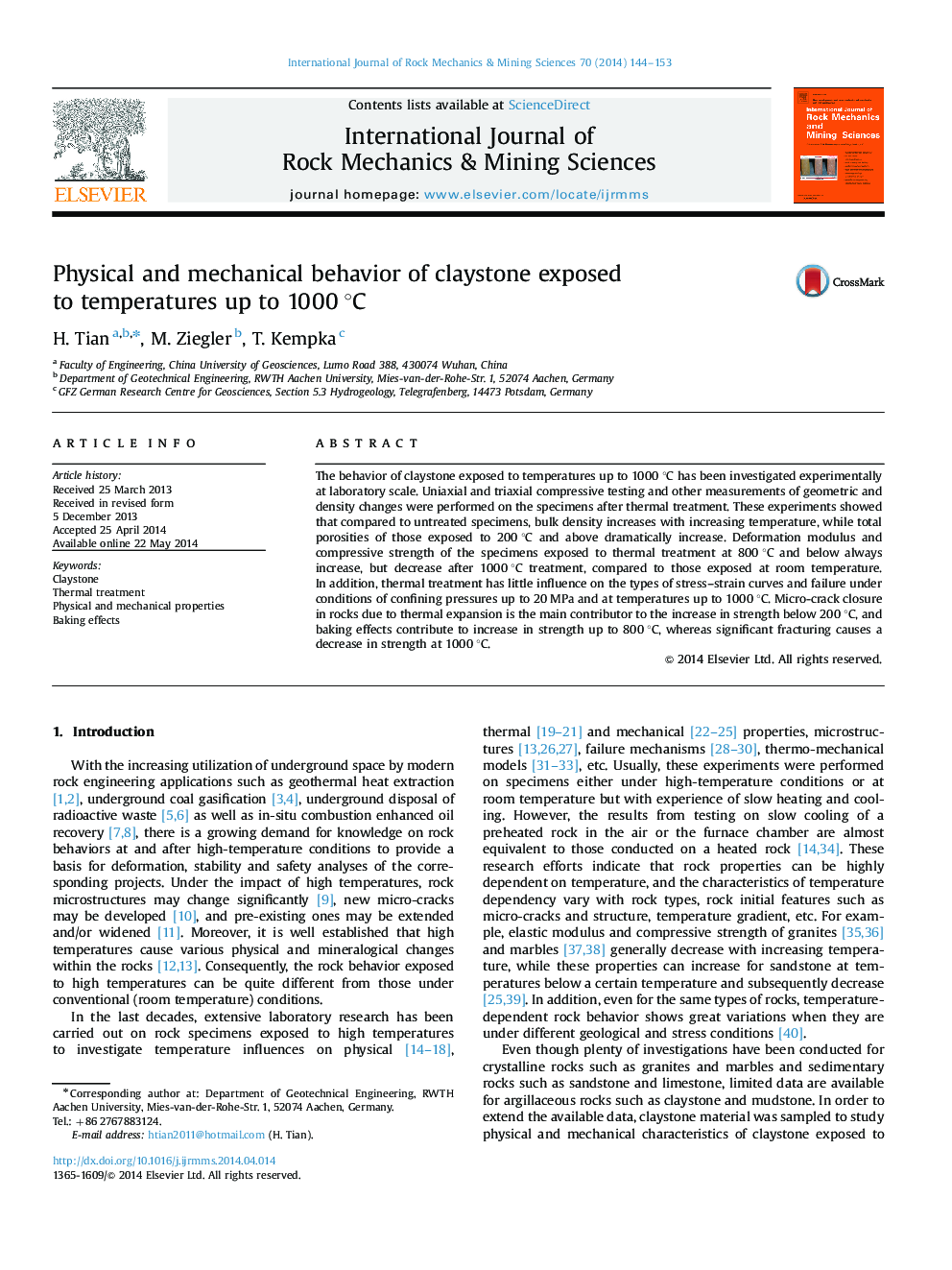| Article ID | Journal | Published Year | Pages | File Type |
|---|---|---|---|---|
| 809090 | International Journal of Rock Mechanics and Mining Sciences | 2014 | 10 Pages |
•Bulk density increases with temperature.•The increase in total porosity becomes notable above 200 °C.•E and σc at 800 °C and below are higher than those at room temperature.•Micro-crack closure and baking effects contribute to the increase in strength.•Fracturing causes a decrease in strength at 1000 °C.
The behavior of claystone exposed to temperatures up to 1000 °C has been investigated experimentally at laboratory scale. Uniaxial and triaxial compressive testing and other measurements of geometric and density changes were performed on the specimens after thermal treatment. These experiments showed that compared to untreated specimens, bulk density increases with increasing temperature, while total porosities of those exposed to 200 °C and above dramatically increase. Deformation modulus and compressive strength of the specimens exposed to thermal treatment at 800 °C and below always increase, but decrease after 1000 °C treatment, compared to those exposed at room temperature. In addition, thermal treatment has little influence on the types of stress–strain curves and failure under conditions of confining pressures up to 20 MPa and at temperatures up to 1000 °C. Micro-crack closure in rocks due to thermal expansion is the main contributor to the increase in strength below 200 °C, and baking effects contribute to increase in strength up to 800 °C, whereas significant fracturing causes a decrease in strength at 1000 °C.
